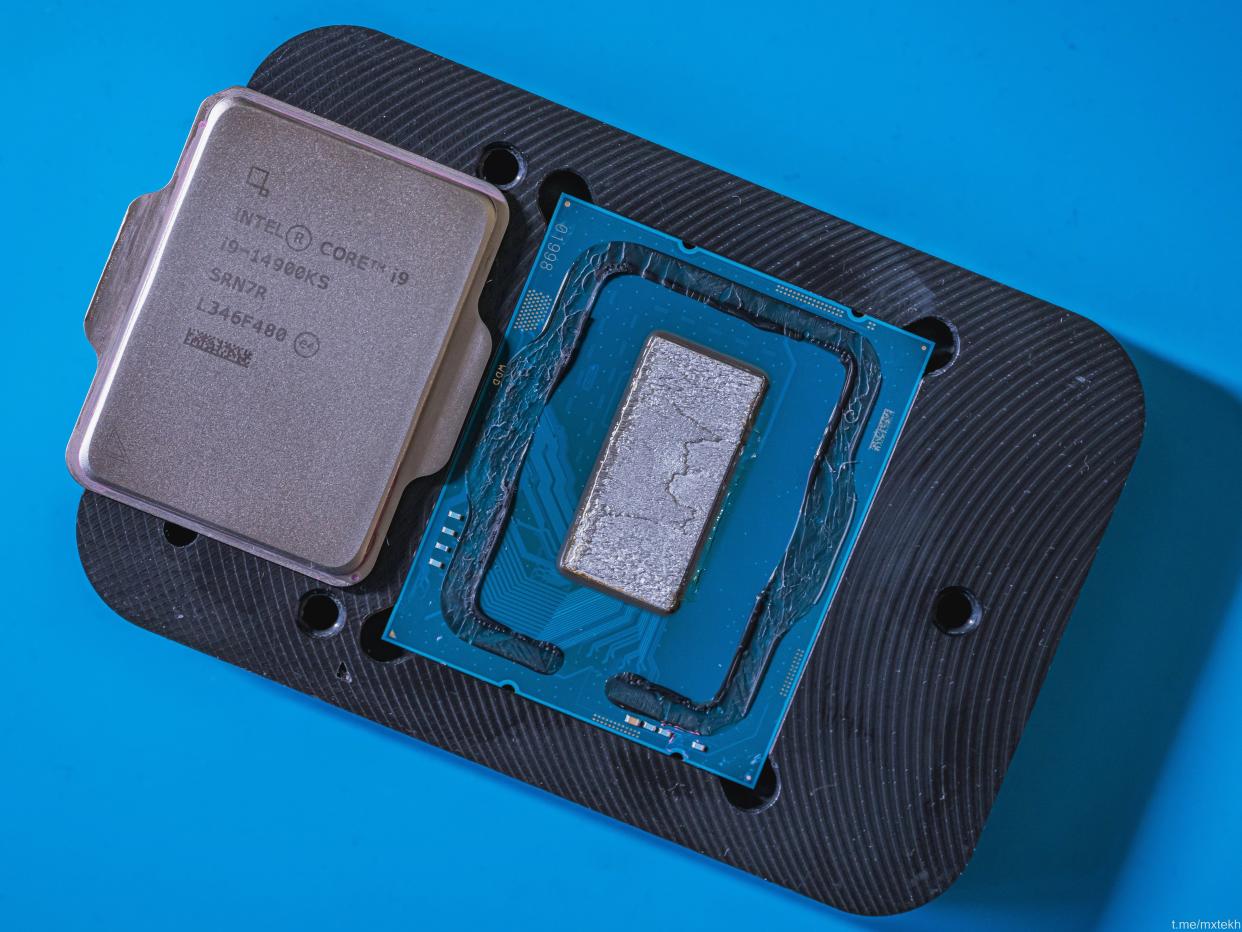Delidded Core i9-14900KS hits intense 409 watts, runs 10C cooler — beheaded chip gets tested before March 14th launch

Overclocker Pakhtunov, who earlier leaked the default clock speeds and voltages for Intel's upcoming Core i9-14900KS, has successfully delidded one and was able to bring down load temperatures by up to 10 degrees Celsius (via VideoCardz). The CPU wasn't even close to thermal throttling after the delid and application of liquid metal, though there's a bit of a catch that puts an asterisk over Pakhtunov's thermal testing.
The Core i9-14900KS is expected to launch on March 14 with a 6.2 GHz boost clock and a 5.9 GHz all-core clock on the P-cores. With a maximum TDP of potentially 420 watts, the 14900KS is expected to run super hot and require excellent cooling. Of course, another option is to remove the IHS (or lid, hence delid) from the CPU, replace the stock thermal paste with a high-performance conductor like liquid metal, and then put the IHS back on. This is what Pakhtunov did with his pre-launch chip.
However, Pakhtunov didn't run the 14900KS at stock settings for this thermal testing. Instead, he locked the P-cores to 5.9 GHz (the same as the all-core boost frequency) and turned Hyper-Threading off. His reasoning for disabling Hyper-Threading was "my AIO is choked on stock 5900 with full 32 threads... Have no idea why on earth hwinfo displays 60W more with the same settings after delidding." The AIO cooler he's referring to is a 360mm DeepCool LS720SE; a more robust liquid cooler may take better advantage of Hyper-Threading.
So, while this wasn't a default 14900KS, the results were still impressive. Prior to the delid, the 14900KS ran at 85° C in Cinebench 2024 and 89° C in y-cruncher. With the delid and liquid metal applied, this dropped to 75° and 82°, respectively. Power consumption also decreased from 376 watts in Cinebench 2024 and 432 watts in y-cruncher with the stock IHS to 366 watts and 409 watts after the delid. Hotter processors run less efficiently, so decreasing temperatures can decrease power even if frequency and performance remain the same.
Unfortunately, since Hyper-Threading was disabled, it's hard to compare Pakhtunov's Cinebench 2024 scores to most 14900K scores. However, since the frequency uplift is relatively small, it's unlikely the 14900KS will smash records. Because of this, the 14900KS isn't expected to be great for value as it will likely retail for $700 or so, similar to previous Special Edition CPUs.

